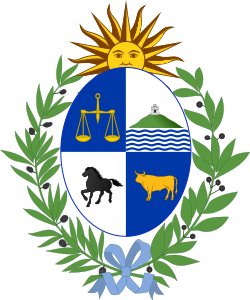 |
|---|
Parliamentary elections were held in Uruguay on 22 January 1905 to elect all members of the Chamber of Representatives and 7 of the 19 members of the Senate. [1] The elections had originally been scheduled for November 1904, [1] but were postponed in the aftermath of the Saravia revolt, which had culminated in the Battle of Masoller in September 1904.
